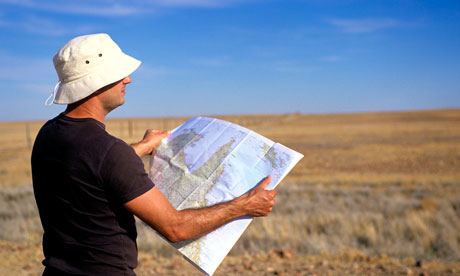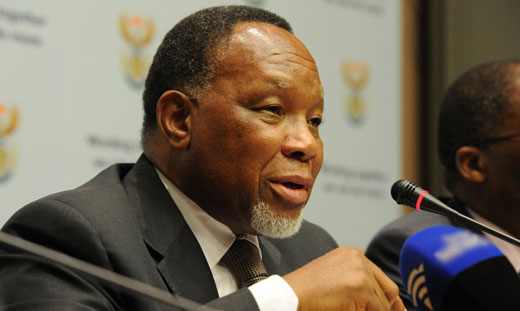I have often defended the ANC, or at least tried to understand where they are coming from, but this latest stunt has got me a little wound up…..
Last week an almighty row flared up in South Africa between the ruling party (the African National Congress) and the First National Bank (FNB) who are one of the biggest banks in the country. FNB had released an advert on TV as part of their ‘You can help’ campaign which seeks to ‘inspire all South Africans to work together by helping one another’. The advert was a series of children and young people talking about their hopes for South Africa and the future.
So what was the problem?
You would have thought that this would be fairly unproblematic, indeed some might have viewed it as a good way in which one of the biggest banks in the country was seeking to engage in social issues as part of a corporate social responsibility strategy.
However this is not how it has gone down. Unfortunately a number of the children’s comments were adjudged to have implicitly criticised the government as the children asked for, among other things, an end to corruption and people voting for the “same government” while hoping for change. One young person questioned the decision to spend money on the improvements to President Zumas Nkandla home whilst another called the Basic Education Minister Angie Motshegka ‘brainless’ in light of a scandal last year which saw some schools in Limpopo province go a whole school year with no textbooks.
What was the reaction?
Unsurprisingly the ANC did not accept the adverts lying down. The party’s spokesman, Jackson Mthembu, stated that ‘the ANC, its leadership and government (are) under attack on a commercial masqueraded as youth views,” and that “What is of concern to the ANC is that the advert content is an undisguised political statement that makes random and untested accusations against our government in the name of discourse.
“FNB must desist from using school kids to make political statements in a manner that is disrespectful to elders and that disregard sacrifices made in the 18 years of democratic government.” The party then went onto argue that the clips had a negative impact on business confidence and could undermine the promotion of investment into the country and that it was ‘strongly raising a question why the organisation should continue to bank with a bank that has adopted an oppositional (sic) stance to it.”
“The ANC indicated that its leadership and membership were strongly raising a question why the organisation should continue to bank with a bank that has adopted an oppositional (sic) stance to it.”
The ANC Youth League called FNB’s campaign “an obviously lame attempt to recreate an Arab Spring”. The youth league said children were used in advertisements to make “unproven claims” and drive an “undoubtedly treasonous agenda”. They also at one point suggested that the adverts amounted to ‘child abuse’.
The ANC Women’s League called on FNB to apologise for the “offensive and politically biased advertisements”. “It is concerning that a financial institution holds such strong political views and it is clear from the content of these adverts that FNB has a distinct antigovernment stance,” the Women’s League said in a statement.
What has happened since?
What is one of the most surprising things about this case is how quickly the bank have capitulated and given in. Within a day the adverts were off air and a leaked SMS message from the bank CEO Sizwe Nxasana to the Basic Education Minister read;
“Good Morning Minister. I have instructed FNB to remove the video clips from their website this morning. I will investigate how and why the clips ended [up] on their website. Sincere apologies for this. Sizwe,”.
Leading figures and oppositional parties have been quick to criticise the banks retreat, as well as the initial ANC reaction. University of Free State vice-chancellor Jonathan Jansen posted on Facebook: “I am deeply disappointed by FNB for running to apologise/explain to a political party for airing the voices of children. Does FNB realise how much blood was spilt for the right to say what you think? I fear for my country,” he posted on Saturday.
Democratic Alliance leader Helen Zille tweeted on Saturday: “Saying that #FNB caved in order to protect the kids in the advert is a more devastating statement on the ANC govt than anything the ad said.”
Why is this whole thing important?
Were FNB trying to make a political statement? I don’t know. Even if they were I don’t think it required this level of reaction.
I have been particularly irritated/enraged by this whole saga for a couple of reasons. Firstly as someone who has worked in, and is doing a PhD in, youth and development the idea that young people’s voices can be not only dismissed, but redefined as being ‘treasonous’ is beyond infuriating. And the idea that young people expressing their views, and in doing so exhibiting the ability to think critically and reflectively about their country and government, is only possible as a result of political manipulation and ‘abuse’ is quite frankly mind blowing. It is important to remember that this is the same government which has not only publicly declared that young people are the ‘future’ but have also set out a detailed strategic plan for how young people can and must become more involved in national development. Their whole response to this advert certainly raises questions of the ability to undertake this commitment in any meaningful way.
Secondly, this saga touched on a nerve and sense of unease which has been growing in me since I arrived in September around the role of disagreement and space for oppositional politics, in any shape or form, in the country. Conversations with colleagues, friends and those in the communities where I am doing my research quickly reveal the way in which this lack of space is found at multiple levels. From the national executive where it is clear that those who do not endorse the dominant presidential line are quickly ‘manouvered’ out of the way, to the local level where even youth councils are elected in such a way as to make them another arm of the political machinery. Rather than being spaces for potential alternative views they become another way for the ANC to control the narrative.
In a recent conversation with a friend they became very angry when I asked them about recent comments from the opposition party about the textbook scandal mentioned above. Their anger was not because they thought that the criticism in itself was wrong, but rather it was the manner in which it had been done that was problematic. It was ‘not their place’ to criticise and to ‘humiliate’ the government. Rather they should show by ‘doing’ and rather help the government to correct the situation.
I do think that an element of this is protectionism towards the ANC. This is the party which fought in the struggle, which people sacrificed their lives for and ultimately gave the majority of the population the vote not that long ago. As such the party represents something which most South Africans are fiercely proud of and for many an attack on the ANC is seen as an attack on their own identity and everything that they fought for during apartheid.
But beyond that I think there is a deeper need to understand the role of disagreement and ‘oppositional politics’ within South African society. Democracy has not emerged naturally here, but like elsewhere across Africa has been implemented from the top-down on a completely different social structure based on a Western idea. And no, I’m not saying it is wrong, but only that we need to think about these issues to try to understand what is going on.
The recent history of South Africa has also played a key role in shaping South African’s ability to disagree with each other. Pre-1994 political disagreement was quite often a question of life or death. Is it therefore surprising that people are reluctant to, or struggling to, suddenly allow open debate in political and social life?
I was caught in a rather heated debate in a spazza shop today between two young men, one defending the ANC and the other, although an ANC member (‘till I die’) who was questioning as to whether ‘freedom’ would be better achieved through fuller and more open democratic debate, or whether ‘freedom’ could only be achieved through all getting behind the ANC to do what they had to do. After 45 minutes I have to admit I lost track of the conversation but what was becoming clear was that for many the ‘freedom’ promised by the ANC comes first and democracy second.
This might seem strange to many but if you had spent your entire life under a regime which systematically oppressed and devalued your existence you may think twice about allowing new and oppositional voices to the one which ‘set you free’ into the ring. Whilst the narrative of a ‘new free and democratic South Africa’ was a powerful image in 1994 I’m not sure that a real understanding of what that might mean, and what it might look like in a post-ANC era is being, or has been discussed within the political sphere (I’m sure there are probably hundreds of academic papers on it gathering dust in a library somewhere….)
Anyway, I’m not entirely sure that all of this makes sense even to me but it is both fascinating, and also sadly disheartening. We should not forget that South Africa is a young democracy, and it will take time to develop and mature. The transition to democratic rule will take longer than the change in the constitution – it is both a legal and psychological process. But in order for this transition to take place there has to be a safe space where the ruling party and policies can be critically examined, objected to, or even endorsed. As someone who works with young people I know how important the next generation will be in doing this and can only hope that this whole saga isn’t truly representative of the government’s feelings towards its young people.
I should be clear though, by no means am I suggesting that the country is becoming an autocratic one party state. Nor am I excusing their behaviour by trying to understand it. Rather it is to draw attention to the need to begin to address these issues. South Africa is held up by man as as a leader for Africa not only in terms of economics, but also governance, and therefore these spaces for reflective and critical thinking about the nation and what it means to everyone must be developed for everyone, not just members of the ANC.













